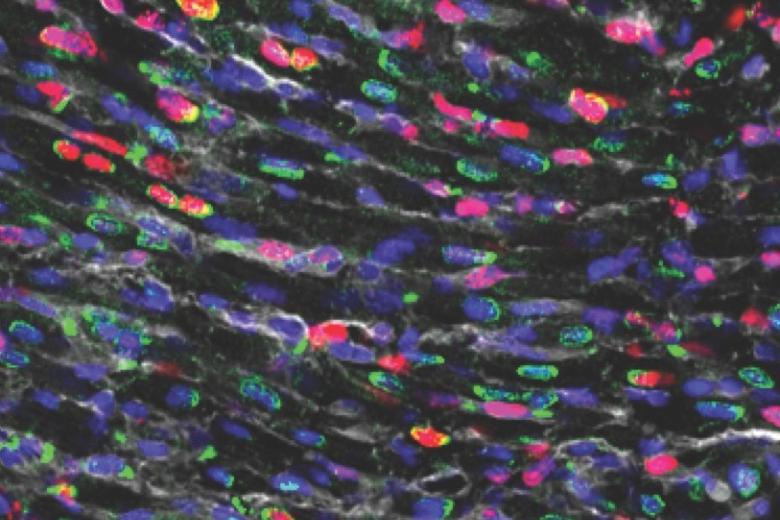Menstruation is still a taboo in the workplace
In honour of the presentation of the VNVA Els Borst Prize for her oeuvre, Prof Marlies Bongers is organising the symposium "menstruation in RED on the agenda" on 1 October. During the symposium, four speakers will highlight the topic of menstruation from different angles. Following this, there will be a panel discussion on menstrual distress in the workplace, to draw more attention to this issue.
Many employees experience menstrual problems every month: heavy bleeding, unbearable pain or both, unexpected extreme bleeding or hot flushes. This concerns some 0.5 million working people in the Netherlands. Despite this high number, menstruation in the workplace remains an undiscussed item.
Taboo on menstruation
Women are good at getting around the subject, says Marlies Bongers, professor gynecology at Maastricht University. They call in sick 'with flu' when bleeding is too heavy, go over their limits and continue working when they really cannot, or they go part-time. They only wear black trousers because the bleeding is so heavy. There are also individuals who choose not to work at all for this reason. The issue reinforces inequality in the workplace.
TZorg is one of the organisations participating in the panel at the congress, along with major companies such as bol.com, policymakers and women's rights organisation Women Inc. Managing director of Tzorg Marianne de Winter confirms that menstrual issues are also an issue within her company. An internal survey shows that many home-helpers suffer from menstrual complaints. Yet only 2% raise the alarm with their employer about this, because they consider it a private matter or dare not. "So it is important to create awareness in the organisation about this problem so that talking about it becomes natural," says de Winter.
We have to talk about this
Indeed, according to Bongers, the solution starts with starting a conversation: "talking about menstruation, anywhere, should be very common". Menstrual leave, as introduced in Spain earlier this year, is an option, but often not necessary. By making company doctors and HR staff aware of the problem, Bongers hopes that we can find joint solutions. These solutions vary per complaint and person. For example, it may help to work at home during menstruation, or start an hour later. Above all, having severe menstrual complaints is a sign that you should have it looked at by a doctor.
By organising the conference, Bongers hopes to put the problem in the sights of employers and policymakers and encourage people to discuss menstrual complaints, thus enabling concrete steps to be made in the workplace.
More information about the programme and the speakers at the congress can be found here.
Press can sign up for the symposium by sending an e-mail with name and contact details to vnvamail@vnva.nl.
Also read
-
Repeat miscarriages: does the immune system play a role?
In women trying to conceive, 1-3% experience repeated miscarriages. For more than 50% of these women, a cause for the miscarriages has yet to be found. New research from Maastricht University (UM) and the Maastricht University Medical Centre+ (MUMC+) shows that the immune system’s Natural Killer (NK...

-
New European project aims to think outside the box when it comes to medicine
The European Commission has awarded €23 million to set up a new platform for drug repurposing: the use of existing drugs in diseases other than those for which they were originally developed. In the next seven years UM will develop the platform REPO4EU (precision drug REPurpOsing for Europe)...

-
Tinkering with microRNAs helps heart cells regenerate
Scientists and cardiologists have known for decades that once a piece of heart muscle has died, for example due to a heart attack, it will never grow back. However, a research group from Maastricht University led by Professor Leon de Windt has now shown that by tinkering with microRNAs, heart muscle...
